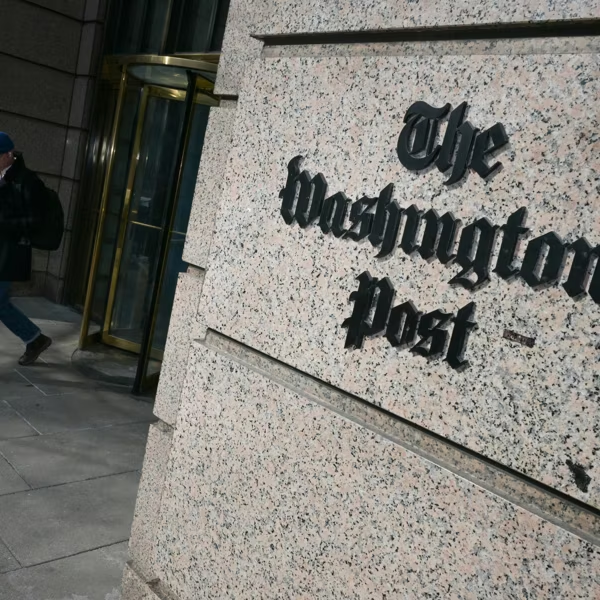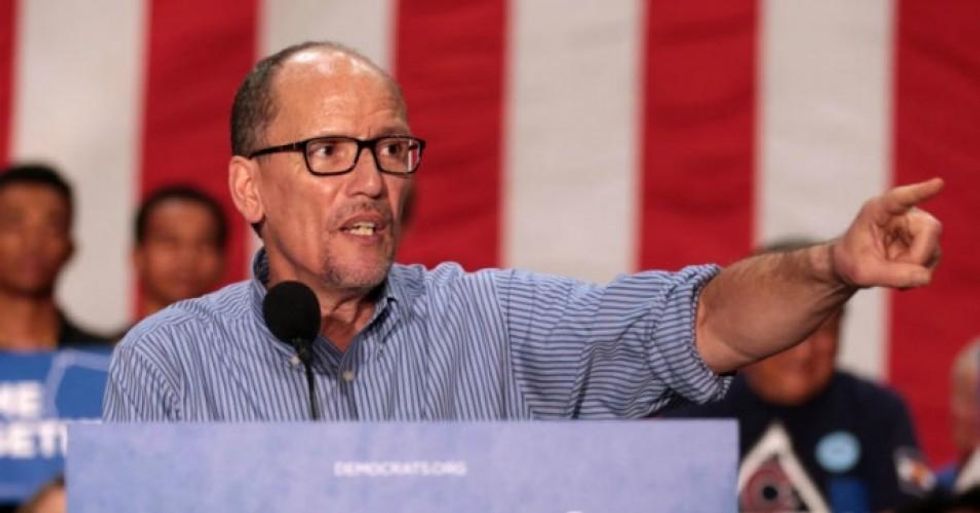As President Donald Trump continues to wage war on journalism with "violent anti-press rhetoric," the Committee to Protect Journalists (CPJ) published a scathing analysis on Tuesday arguing that the Democratic National Committee's recent lawsuit against WikiLeaks could set the stage for even more alarming attacks on press freedom by empowering the U.S. government to penalize media outlets that publish leaked information.
"This precedent threatens all journalists."
-- Glenn Greenwald, The Intercept
Citing the concerns expressed by numerous First Amendment experts and journalists, CPJ's Avi Asher-Schapiro contends that the DNC's suit--which accuses WikiLeaks of conspiring with Russia and the Trump campaign to tilt the 2016 election by publishing a trove of hacked DNC emails--"goes against press freedom precedents going back to the Pentagon Papers and contains arguments that could make it more difficult for reporters to do their jobs."
"What the language in this suit is calling 'conspiracy' is the same thing journalists do all the time--report on leaked or stolen documents. Imagine if Trump had the power to go after 'leakers' for 'conspiracy,'" Rolling Stone's Matt Taibbi wrote in a series of tweets highlighting CPJ's "blistering" report on Tuesday. "This case has potentially enormous consequences for the press as a whole."
"This precedent threatens all journalists," added Glenn Greenwald, co-founder of The Intercept.
George Freeman, executive director of the Media Law Resource Center, echoed Taibbi and Greenwald in an interview with CPJ, arguing that the DNC clearly "paid zero attention to the First Amendment ramifications of their suit."
""We have seen in DOJs under both parties, a willingness to at least bump right up against the line of pursuing journalists criminally. And that's dangerous."
--Barry Pollack, National Association of Criminal Defense Lawyers
"I'm unhappy that there's even an allegation that you could be held liable for publishing leaked information that you didn't have anything to do with obtaining," Freeman added.
James Goodale, a First Amendment lawyer who represented the New York Times in the 1971 Pentagon Papers case, said the idea that outlets like WikiLeaks should be punished for receiving and publishing stolen documents--an idea that forms the foundation of the DNC suit--is the "greatest threat to press freedom today."
As Common Dreams at the time, free speech advocates raised alarm about the DNC's suit when it was filed last month, arguing that it is both riddled with legal holes and full of dangerous implications.
"I think that this civil suit goes well beyond what the First Amendment permits," Barry Pollack, former president of the National Association of Criminal Defense Lawyers, who represents WikiLeaks founder Julian Assange in criminal cases. "We have seen in DOJs under both parties, a willingness to at least bump right up against the line of pursuing journalists criminally. And that's dangerous."




